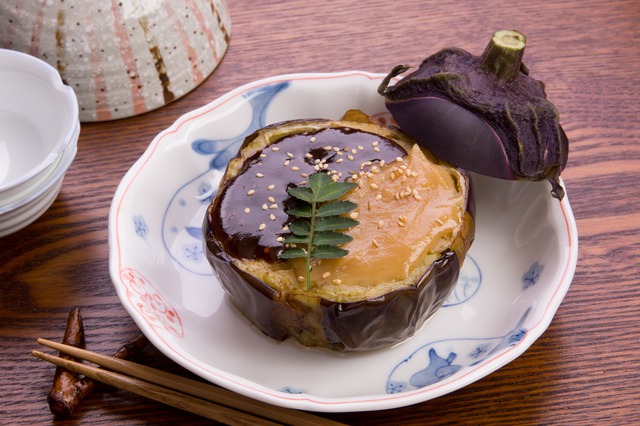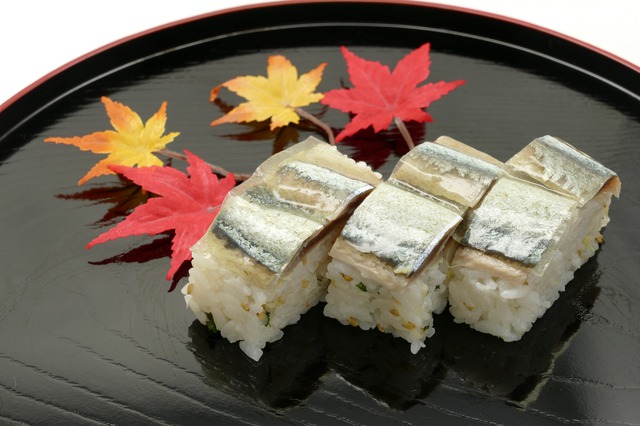
13 Must-Try Kyoto and Nara Dishes
Kyoto and Nara are both cities that are well known for their long histories and rich culture. Of course, that extends to the food. If you're interested in exploring their culinary history, check out these regional dishes that are beloved in Kyoto and Nara! Note that while some of these dishes can be found outside of these cities, they either originate from the area or have just traditionally been eaten in Kyoto and Nara since long ago.
This post may contain affiliate links. If you buy through them, we may earn a commission at no additional cost to you.
Our Top Tips
JR Pass for Whole Japan
Explore Japan in the most convenient and economical way with a Japan Rail Pass! It is valid for the majority of railways and local buses operated by JR.
1.Uzumi Tofu【Kyoto】
You might be wondering why this dish is called Uzumi. Well, apparently Uzumi means "being buried" but don't worry, it really refers to how the tofu here is generously served to the point that the rice looks buried underneath it. Hot steamed rice is topped generously with tofu and besides steamed white rice, you can choose to have multigrain rice or porridge with the tofu too.
2. Kamonasu Dengaku【Kyoto】

Kamonasu is a special Kyoto dish that is mainly served during summer and the eggplants used for this dish is harvested from Kamigamo and Nishigama area. The eggplant is cut into half lengthwise and the center is scooped out and then filled with yummy stuffing. The texture of the dish is just right and the eggplant is juicy and tender. This grilled eggplant dish, Kamonasu is served with some sweet Dengaku Miso sauce.
3. Kinomeae【Kyoto】
The bamboo shoots here in Kyoto, Kansai are said to be the best in the whole country. The taste is sweet and you would be surprised to find out that both the inside and the skin of the shoot are white. These bamboo shoots are blanched and then seasoned with white miso and some mirin to make a lovely Kinomeae dish.
4. Kyo-tsukemono【Kyoto】
Kyo-tsukemono, which are basically Kyoto pickles are known for its mild taste and they say that the thousand-layer pickled turnip from Shogoin area is the best among them all. The turnips from the Shogoin area are pickled to create a delicious pickle that many say you would never forget once you have a bite of it.
5. Chirimen Sansho【Kyoto】
You might not think much of this dish but you would understand why we love it once you have it with a bowl of steaming hot rice. You might actually have more than one serving of it because it is that delicious and addictive. This dish is made by stewing dried young sardines and Japanese pepper in soy sauce. You can use this in your onigiris or ochatzuke dishes too.
6. Hamo no Otoshi【Kyoto】
People in Kyoto will definitely tell you that in summer, one must always have Hamo no Otoshi. Well, hamo which is a type of fish from the eel family isn't quite popular in Japan actually because it comes with way too many bones but there are very talented chefs here in Kyoto that will fillet it for you and turn it into a mouthwatering dish. The fillet hamo is blanched and then served with pickled plums and a spicy miso paste.
7. Yudofu【Kyoto】
Now, if there is one dish that everybody talks about when they visit Kyoto, that would have to be Yudofu. Kyoto's Yudofu is simply exquisite. The tofu is made from high-quality fresh water and served with fresh condiments making it a simple, refreshing and yet delicious dish. This Kyoto dish is very popular among visitors from far and wide.
8. Kakinoha-zushi【Nara】
You can find Kakinoha-zushi, sushi wrapped in persimmon leaves, at other prefectures of course but when it comes to kakinoha-zushi, many would immediately think of Nara's kakinoha-zushi. That's probably due to the famous poem written by Masaoka Shiki that went something like "Bite into persimmon, and the bells of Horyu-ji will toll". But we are certain that the taste is also part of the reason why this local delight is so famous.
9. Sanma-zushi【Nara】

The Pacific Saury or Sanma travels from the north to the south and they are usually harvested in December from the Kumano Sea. This fish is low in fat content and so to turn it into a really delicious dish, the locals here have come up with sanma-zushi. It is so good that it is usually served during auspicious and special occasions. But of course, now with modern technology in food storage and preservation, sanma-zushi can be eaten all year round.
Our Top Tips
Japan Shinkansen, Narita Express (N'EX) & Express Train Tickets
Plan ahead by booking your shinkansen, airport train, and express train tickets online in English. Have the tickets sent to you by mail or collect them at the station once you're in Japan.
10. Shikaniku no Yamatoni【Nara】
In Japan, it is quite rare these days to get fresh venison meat to make this venison stew, Shikaniku no Yamatoni but fear not for their canned version is just as good. The dish itself is low in calories. The venison meat that is high in protein is stewed and when you bite into its tender meat, you can't help but agree at how delicious and fragrant the stew is.
11. Narazuke【Nara】
Melons, cucumbers and watermelons and other types of vegetables and fruits are at first pickled in a salt solution and then later in a sake cake solution. This type of pickles, Narazuke has been around since the Nara period and that is the reason why it is called Narazuke.
12. Yamato no Tsurushigaki【Nara】
There are many persimmon trees here in Nara and due to the abundance or persimmons here, it wouldn't come as a surprise that there are many products here that use persimmons and one of them would have to be Yamato no Tsurushigaki. Yamato no tsurushigaki are actually dried persimmons and they are very popular, so much so that we have noticed that their prices have increased steadily over the years.
13. Miwa Somen【Nara】
Somen was brought in from China during the Nara period and the recipe is still faithfully practiced to this very day. Although many would think that somen is more of a summer dish, but here in Nara, somen is also eaten during winter with a bowl of piping hot bowl of broth. Both summer and winter version are just as delicious.
The information in this article is accurate at the time of publication.



